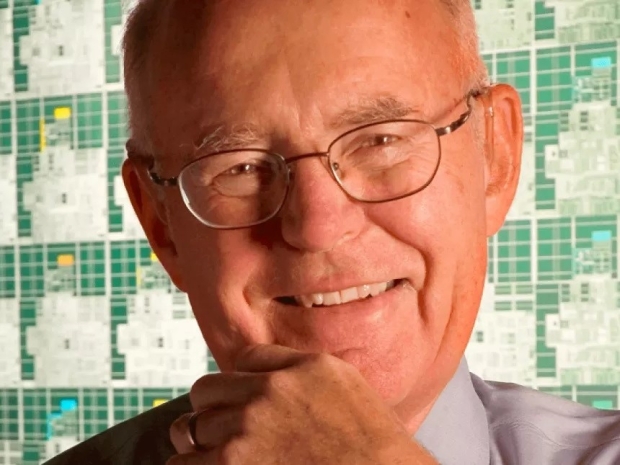Moore has been hugely influential on the computing industry and could be faintly amused that many of the articles written in the last years of his life focused on debates about whether his “Moores Law” was dead. (Spoiler alert. Not yet)
Moore's list of credits is a long one spanning decades of technological innovation. After graduating from the Applied Physics Laboratory at Johns Hopkins University in 1958, Moore joined Fairchild Semiconductor, eventually becoming the research & development division director. It was there that Moore coined what was is now commonly known as "Moore's Law."
In July 1968, Moore and another colleague founded NM Technologies, which would later become Intel. He served as Intel's executive vice president until becoming the company's president in 1975. He later served as Intel's chairman and chief executive officer and was named Intel's chairman emeritus in 1997 until his official retirement in 2006.
Intel CEO Pat [kicking] Gelsinger said: "Gordon Moore defined the technology industry through his insight and vision. He was instrumental in revealing the power of transistors and inspired technologists and entrepreneurs across the decades.”
Chipzilla was inspired by Moore's Law and intend to pursue it until the periodic table is exhausted, Gelsinger said.
“Gordon's vision lives on as our true north as we use the power of technology to improve the lives of every person on Earth. My career and much of my life took shape within the possibilities fuelled by Gordon's leadership at the helm of Intel, and I am humbled by the honour and responsibility to carry his legacy forward," Gelsinger added.
Moore has a long history of philanthropic activity. In 2000, he and his wife founded the Gordon and Betty Moore Foundation. The Foundation sponsors projects in various subjects, including astronomy, biology, data-driven discovery, and marine microbiology. Since its first grant in 2001, the Foundation has funded 3,724 science, environmental, Bay-area preservation, and patient care grants totalling more than $4.9 billion.
In 2002, Moore received the Presidential Medal of Freedom from President George Bush. The Institute of Electrical and Electronics Engineers awarded the silicon pioneer its prestigious IEEE Medal of Honour in 2008.




